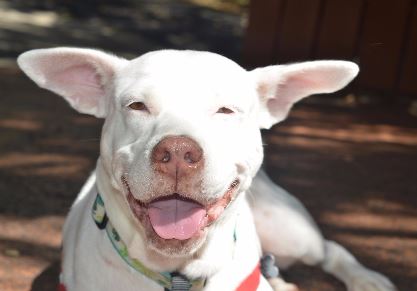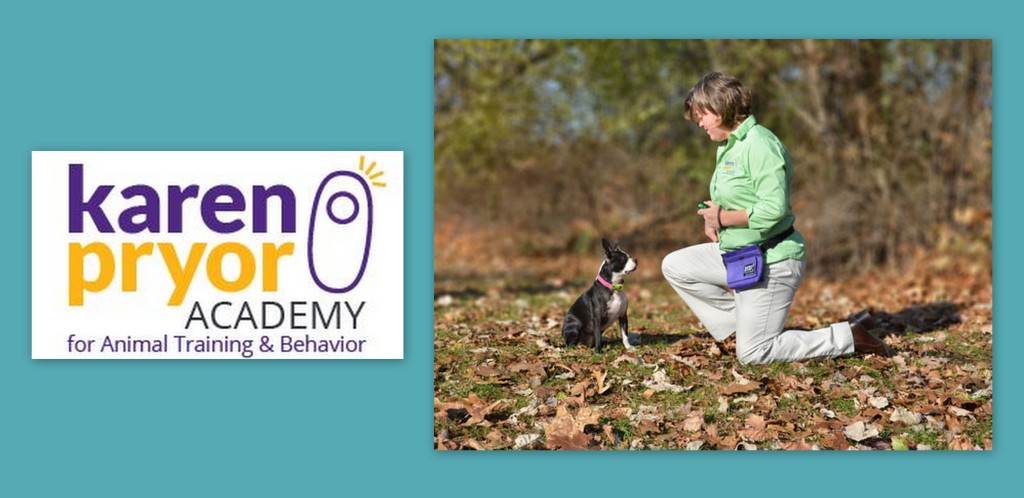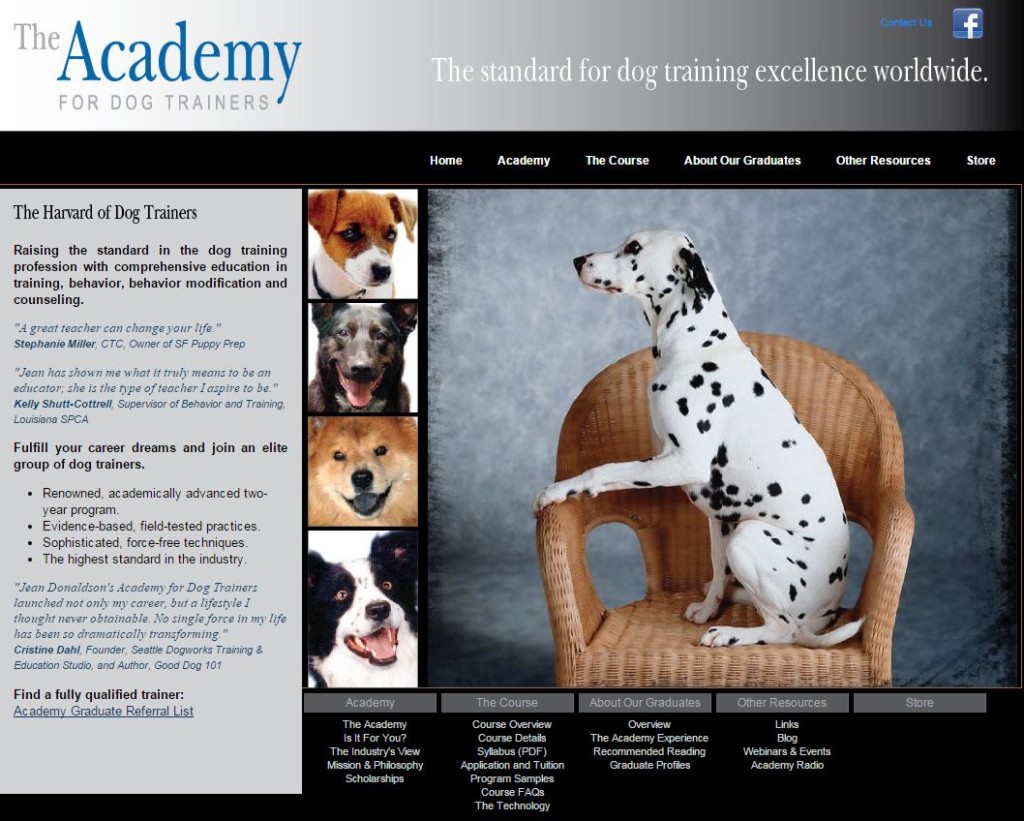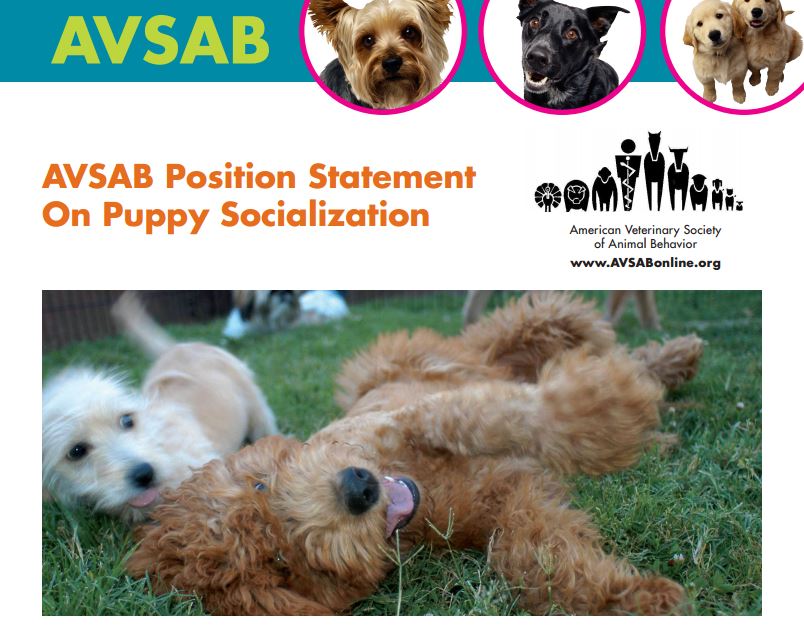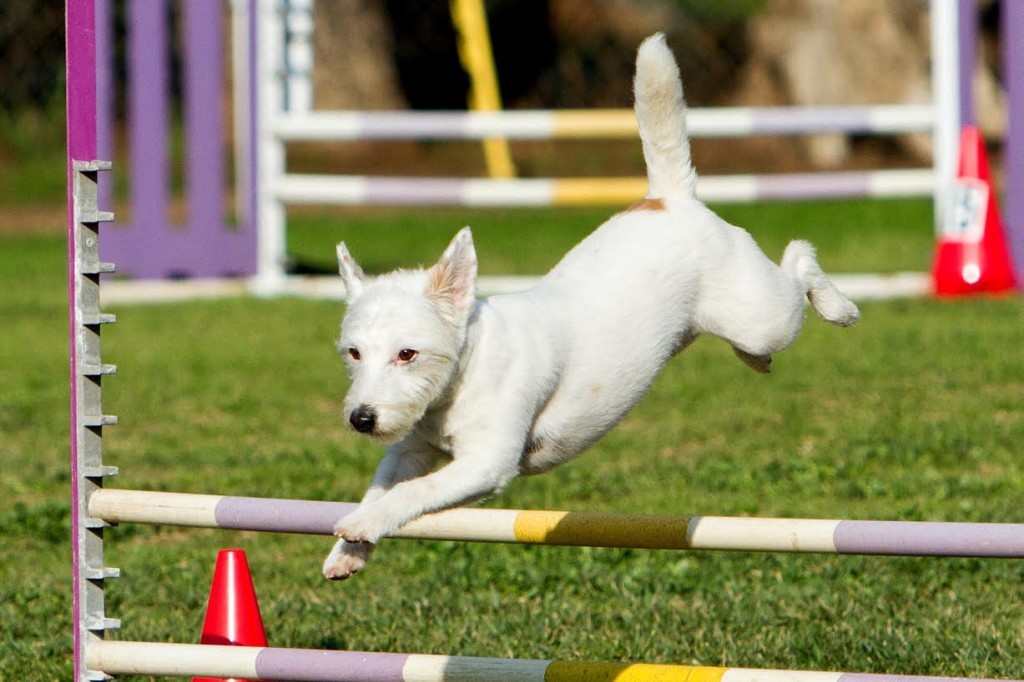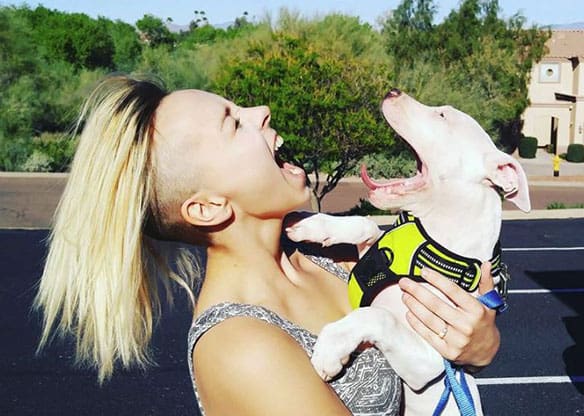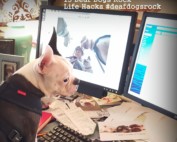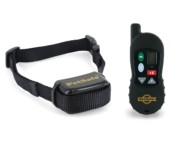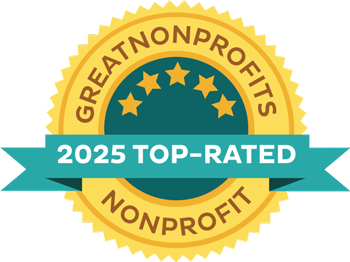We get so many emails here at DDR asking the question “where can I find a dog trainer who specializes in training deaf dogs?”. My answer is always the same; you don’t need a special deaf dog trainer because your deaf dog is # 1. a DOG first, #2. a BREED second, #3. DEAF dog third.
The fact that your dog is deaf should not effect the way you select a trainer. You will still look for and use Positive Reinforcement training methods with your deaf dog. The only difference in the training your deaf dog will be the need to tweak your training program to communicate with your deaf dog visually instead of verbally (you will start with “watch me” training and “beginning sign training” on your own before you meet with a trainer).
Trainer/Author Terrie Hayward has some great information for all of you on how to select a trainer to build a solid training foundation for your deaf dog.
Once again please welcome our guest blogger Terrie Hayward! Terrie is the owner of PAW-Positive Animal Wellness, LLC . She is a professional dog trainer who shares her life with her deaf dog Blanca and is active in helping deaf dogs in need of rescue or training. Terrie recently released her new book “A Deaf Dog Joins The Family” about training, education, and communication for a smooth transition.
Happy Training! ~ Christina Lee – Deaf Dogs Rock
TRAINING YOUR DEAF DOG Who, What, When, Where, & Why by Terrie Hayward
According to world renowned animal trainer and behavior expert Ken Ramirez, the four cornerstones to a good animal care plan are as follows: veterinary care, nutrition, environment, training and enrichment. Often times folks have the first three categories covered. People generally focus on a good veterinary relationship, try to feed quality brand foods, and make sure their pup has a comfortable home with good access to clean water and ample safe exercise scenarios.
However, sometimes people overlook the value of training and enrichment and view is as an “after thought.” But, with deaf dogs, for the very reason that we are unable to utilize our verbal communication skills, training is high on the list of priorities. Finding the right trainer and/or training plan is an important decision. As training is a largely unregulated field you will want to be sure that you hire or partner with a qualified professional.
In finding an appropriate trainer you should first ask about their background and education. There are several schools that offer courses to prepare individuals to be dog trainers. Some of the most prominent and recognized programs are the Karen Pryor Academy and The Academy of Dog Trainers (Jean Donaldson). These schools offer certifications demonstrating that the candidate has successfully passed both practical and knowledge based criteria.
There are also professional organizations that offer external certifications. One of the most widely recognized independent certification bodies is the Certification Council for Professional Dog Trainers. Those who meet the requirements and pass the evaluation exam can use the title: Certified Professional Dog Trainer, Knowledge Assessed (CPDT-KA). The requirements include upwards of 300 hours of dog training experiences as a lead teacher, passing a 250 question exam covering instructor skills, ethology, husbandry, learning theory, and training equipment, and re-certification every three years via a re-test or 36 continuing educational credits. As such, a certified trainer lends the credibility that this person has had to pass rigorous practical and knowledge based testing demonstrating their capabilities.
When choosing a trainer it is important to do your research to avoid being misled by the latest buzzwords or fancy sounding terminology. Training professionals should be proficient at working with animals as well as people in a respectful and caring manner.
They should recognize that relationships for both people and animals are built upon trust and as such should utilize modern, scientific methods to train and interact.
Trainers should promote training, which is based on relationship building rather than compulsion or intimidation. Dogs working with the trainer should be happy and wiggly while learning and (animals as well as their caregivers) should be having fun!
Look to find reward-based trainers who use positive reinforcement, and stay clear of folks who may be “balanced” or correction based (relying on outdated force or “pack leader” mentality). You’ll want to work with a trainer who is proactive vs. reactive and is working to teach and educate animals and their caregivers.
Ask for references from clients, veterinarians, and colleagues. Check with friends and family and look for well-behaved dogs sporting relaxed body language and inquire as to where they learned and who they trained with.
A trainer that you are interested in hiring should welcome your request to observe a class or individual training session. Watch to see that the trainer is interacting positively and professionally with both their canine and human clients and that everyone seems to be enjoying the experience. Be sure that the trainer is a good communicator with the dogs and the people they are working with and that they are available for questions and individual assistance as needed. The instructor should have a genuine interest in what they are doing and should be supportive and encouraging.
This type of professional will welcome your questions. You should ask specifically what type of training the trainer would employ. Reward based trainers may have several positive approaches and/or suggestions to modify a behavior, however will always seek to reinforce behaviors that they like while ignoring those that they don’t. They will look to educate dog families on alternative or incompatible behaviors with those that they don’t wish to see continue and will use treats, play, affection, and attention to reinforce behavior that they want dogs to repeat.
Additionally, a qualified, professional trainer will be someone who is regularly engaging in continuing education to further their professional knowledge and abilities and to stay abreast of the latest information and techniques in the field. The next question is when exactly to begin training your deaf dog? Actually, with each and every interaction, we are, in fact teaching (and learning) our dogs about the world. Thus, informal puppy socialization can and should begin prior to three months of age when possible (http://avsabonline.org/uploads/position_statements/puppy_socialization.pdf). If your deaf dog is older when they come to live with your family, then you’ll want to begin as soon as possible to avoid potential mistakes and/or to eliminate rehearsals of unwanted behavior.
http://avsabonline.org/uploads/position_statements/puppy_socialization.pdf
From puppy socialization to basic manners and obedience, to advanced levels and on to nose work and agility classes, the options abound for you to work with an continue to build the bond with your deaf dog.
Photo by Jennifer Dentino – Her Deaf Dog Kaos – Kaos has earned her Rally Novice Title (RN) and two Agility Titles, Regular Agility Standard – Novice (RS-N) and Jumpers Agility Standard – Novice (JS-N). Read more about how Kaos ROCKS her Agility Trials here.
Overall, teaming up with a professional trainer is a great way to get started on the right “paw!”
For additional information you may also want to reference my pocket guide to working with deaf dogs: http://www.amazon.com/Deaf-Dog-Joins-Family-Communication/dp/1507578261
More About The Author
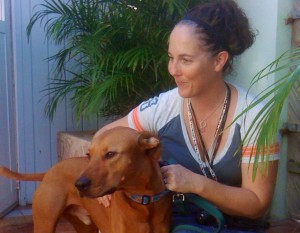 Terrie Hayward’s childhood dog, Bailey went running with her daily. She has always loved animals from an early age and felt strongly about advocating for their well being.
Terrie Hayward’s childhood dog, Bailey went running with her daily. She has always loved animals from an early age and felt strongly about advocating for their well being.
With her Master’s degree in Education she was implementing humane education within her curriculum and bringing her own dogs into her school and classrooms even before devoting her full time career to animals.
For over 15 years she worked in rescue, rehab, and rehoming. A light bulb moment came when she took the opportunity to attend a workshop at Best Friend’s Animal Society in UT (the largest animal sanctuary in the US). She was convinced that positive care and mutual respect towards animals could foster better relationships and happier people + pets.
While living in Samoa without a television, Terrie purchased the book, “Click for Joy” and began teaching her dogs the fundamentals of positive reinforcement in the evenings for something to do. Now a graduate of the Karen Pryor Academy for Clicker Trainers, she is excited to be putting her passion, experience, and skills together with PAW!
Credentials:
- Certified Professional Dog Trainer-Knowledge Assessed (CPDT-KA)
- Master’s degree in Education (M.Ed.)
- Karen Pryor Academy Certified Training Partner (KPA-CTP)
- Certified Separation Anxiety Trainer, Malena DeMartini
- Contemporary Animal Training and Management, professional certification workshop, Natural Encounters, Inc.
- Certified Primary TAG-Teaching with Acoustical Guidance
- Living and Learning with Animals for Professionals, certificate course, Behavior Works
- Professional Animal Training Seminar, Ken Ramirez, Shedd Aquarium
- Sanctuary Workshop, Best Friends Animal Society
- Chicken Camp-Targeting and Discrimination, Legacy Canine Behavior and Training
- Full Professional Member, Pet Professional Guild
- LLC’s Canine Behavior Evaluation Workshop, Animal Alliance
- Dog Cognition & Emotion, Duke University
- Over 15 years of compassionately working with animals and is dedicated to positive animal wellness

